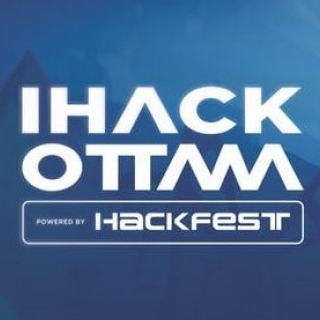Carleton professor fights cyberattacks from Orléans
By Kate Porter
CBC News
Behind locked doors at a municipal building in the Ottawa suburb of Orléans, Tony Bailetti is quietly working on a plan to turn Canada into a global powerhouse for fighting cyberattacks.
The professor is known for nurturing more than 200 companies in his job straddling Carleton University's business and engineering departments.
These days, he jokes that he practically sleeps at VENUS Cybersecurity, a non-profit hub he created in a former town council office.
Bailetti is preoccupied by much more than malicious software nabbing credit card data from retailers like Target.
His eye is on big intrusions — the idea that cyberattackers could take down power grids and water systems, or remotely take over control of cars from their drivers
And his goal is to have Canada "playing with the bigger boys and girls" to tackle the global problem of cybersecurity in fewer than five years.
"The people who have investments in critical infrastructure — we will be the go-to guys," Bailetti said.
'Bell-Northern Research of cybersecurity'
VENUS Cybersecurity was announced to great fanfare at a press conference at Ottawa's City Hall in November 2013.
Politicians boasted that VENUS would create much needed jobs in the eastern suburb — and Bailetti has done that, though these are no run-of-the-mill jobs.
He has assembled some two dozen bright minds, many who have PhDs or are graduates of Carleton's technology innovation management program. Some do research and development. Others conduct tests offsite.
They're funded partly by grants, and increasingly by contracts they do for companies, government departments and universities.
"I describe VENUS as being the Bell Northern Research of cyber security," Bailetti said, likening the venture to the cutting-edge research labs at Nortel Networks' predecessor, almost fabled among Ottawa engineers, where he once worked.
The key for Bailetti, and something he champions in his teaching at Carleton, is that the technology must be practical and solve real problems.
Finding attack brings 'rush'
Alongside a research team, Bailetti gives entrepreneurs space to toil away on cybersecurity startups.
Entrepreneur Arthur Low works out of the non-profit VENUS Cybersecurity in March 2016.
Bailetti may talk about global domination one moment, but the next he's self-deprecating and then directs your attention to entrepreneurs he thinks are doing great things.
Take Sherif Koussa, whose company Software Secured is busy hacking into applications to spot weak computer codes for small businesses.
"When I find an attack and notify a client, I get a kind of rush that I prevented something," Koussa said.
Then, there's Arthur Low, who once designed microchips for Nortel and IBM, and holds patents in cryptography.
Low now thinks he's hit on a way to help computers from being contaminated, especially for companies with employees who travel or work on outside computers.
'You just need to have one initial success to prove it works — and then it's going to catch on like fire.- Arthur Low, technology entrepreneur
Low's technology doesn't involve scanning for viruses. Instead, he's created an operating system that he likens to a disposable cup that can be thrown away to prevent the spread of germs.
Low thinks for Canada to become the cybersecurity powerhouse Bailetti predicts, Canada needs more visionaries who will spend money on technology and products like his. And, Low is not banking on government.
"In the end, this has to connect with people with a profit agenda. And the only way that's to happen is you have to help them make money, so our goal is to help other people make money with these solutions," said Low, who is about to start field trials with an early adopter.
"You just need to have one initial success to prove it works — and then it's going to catch on like fire."








